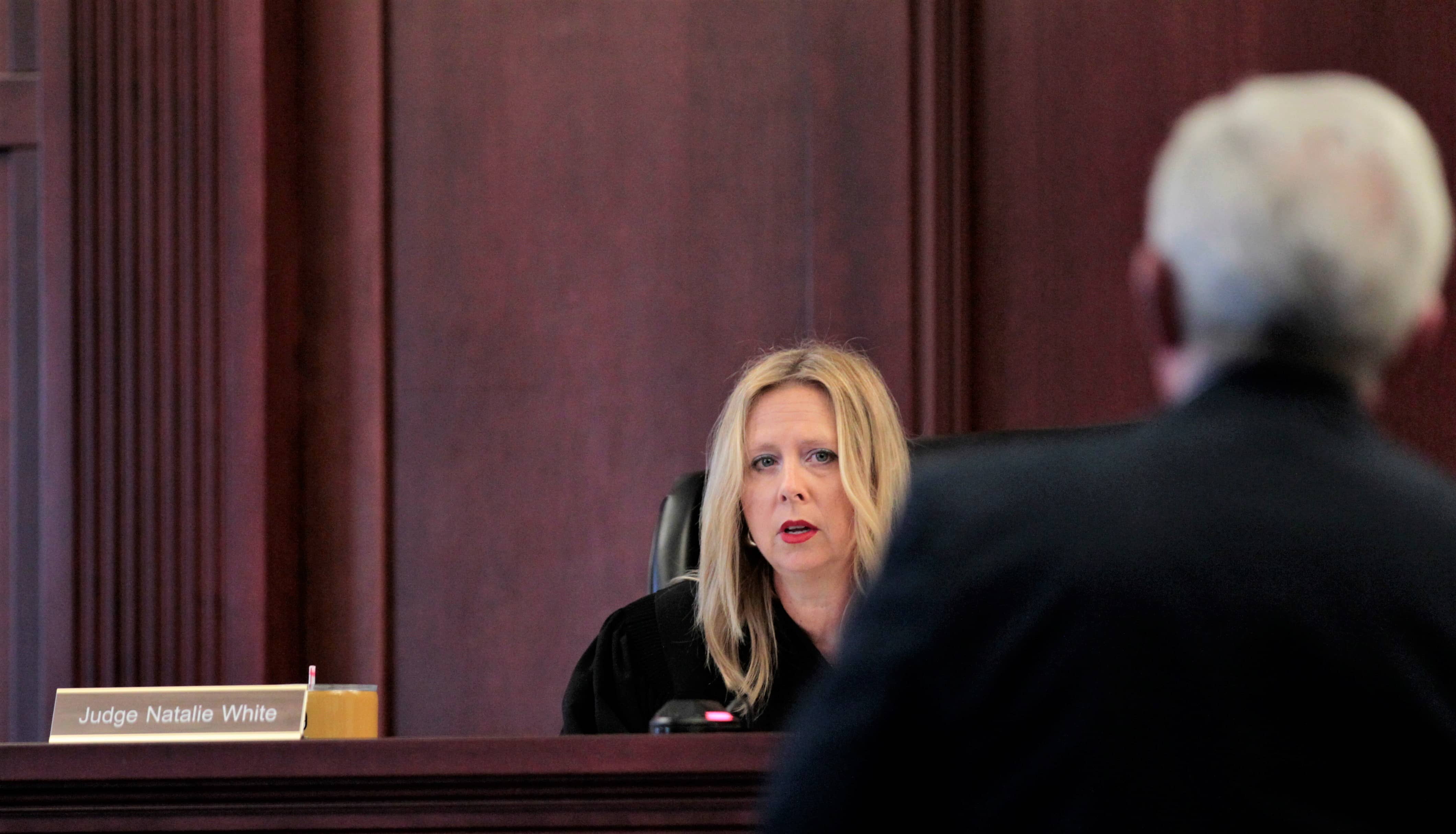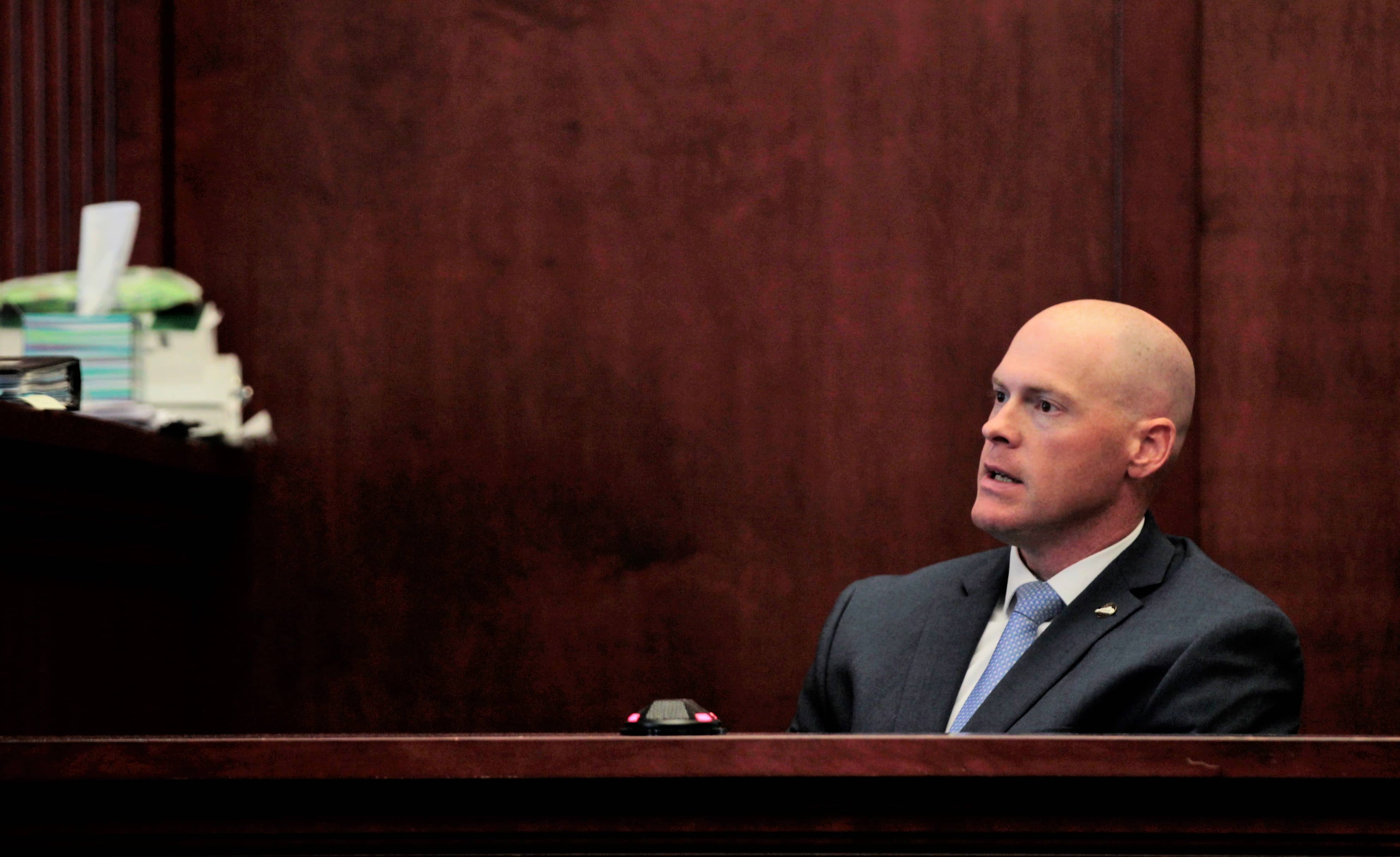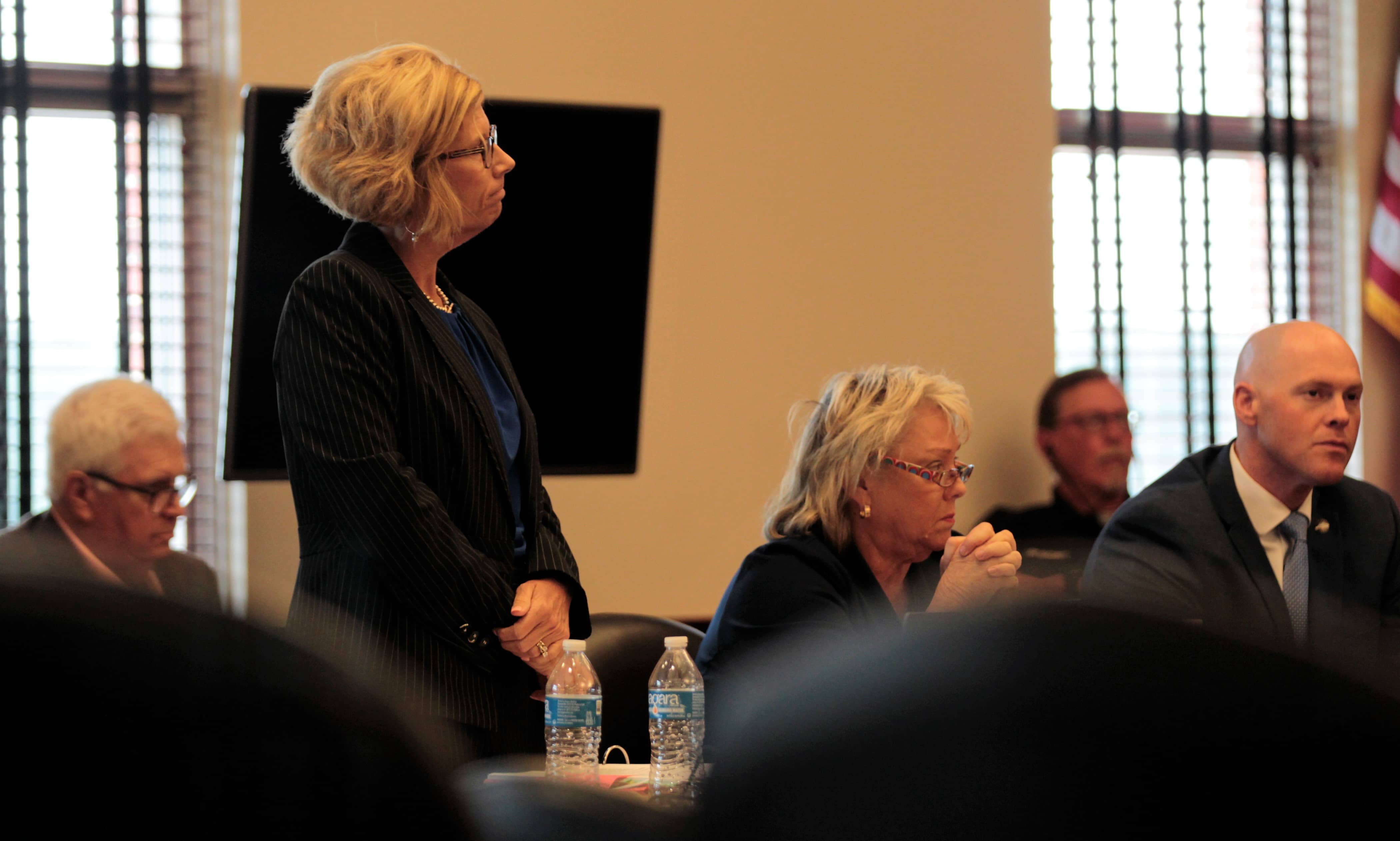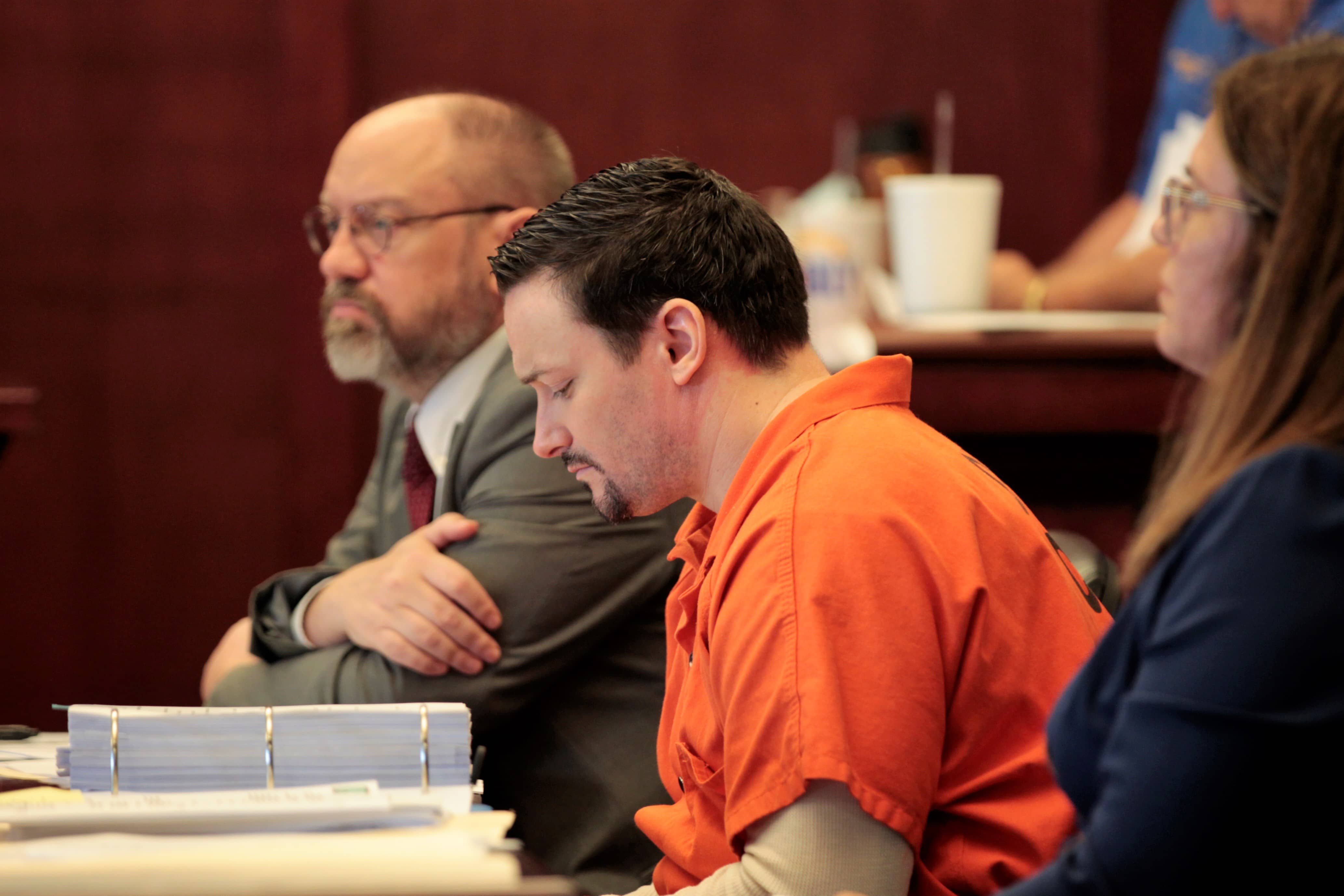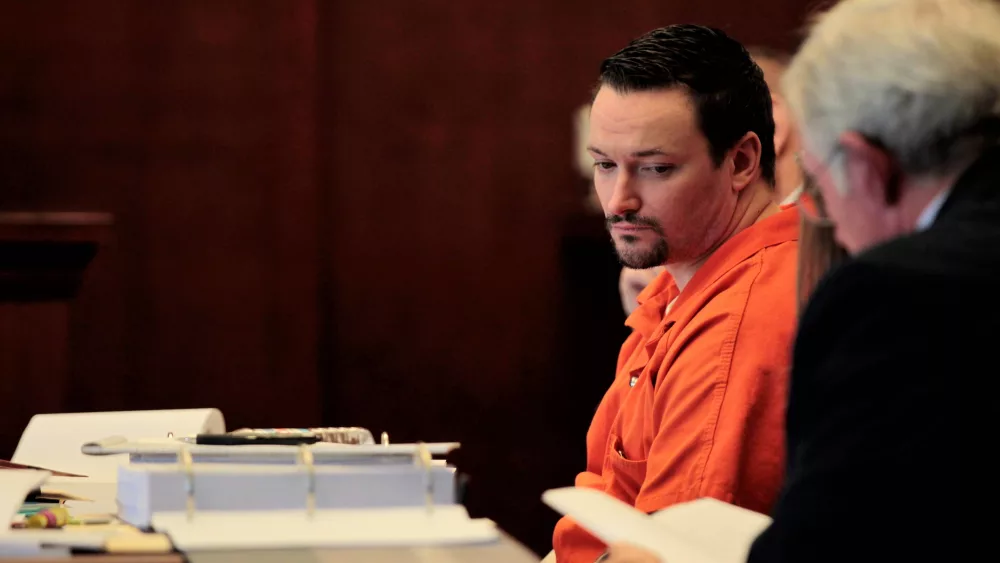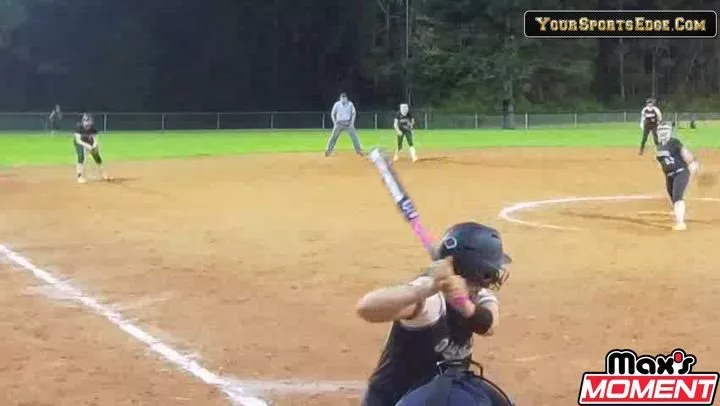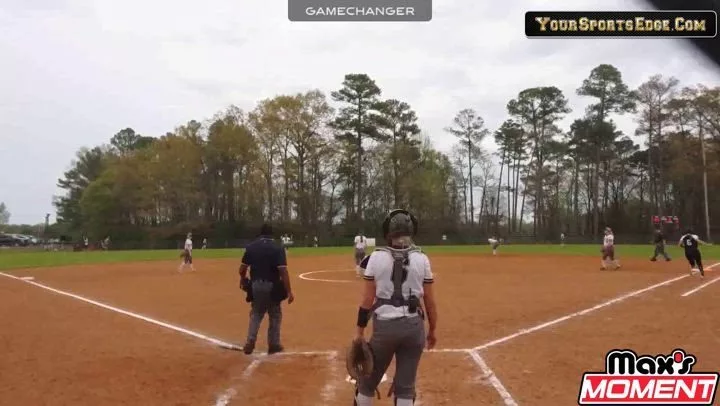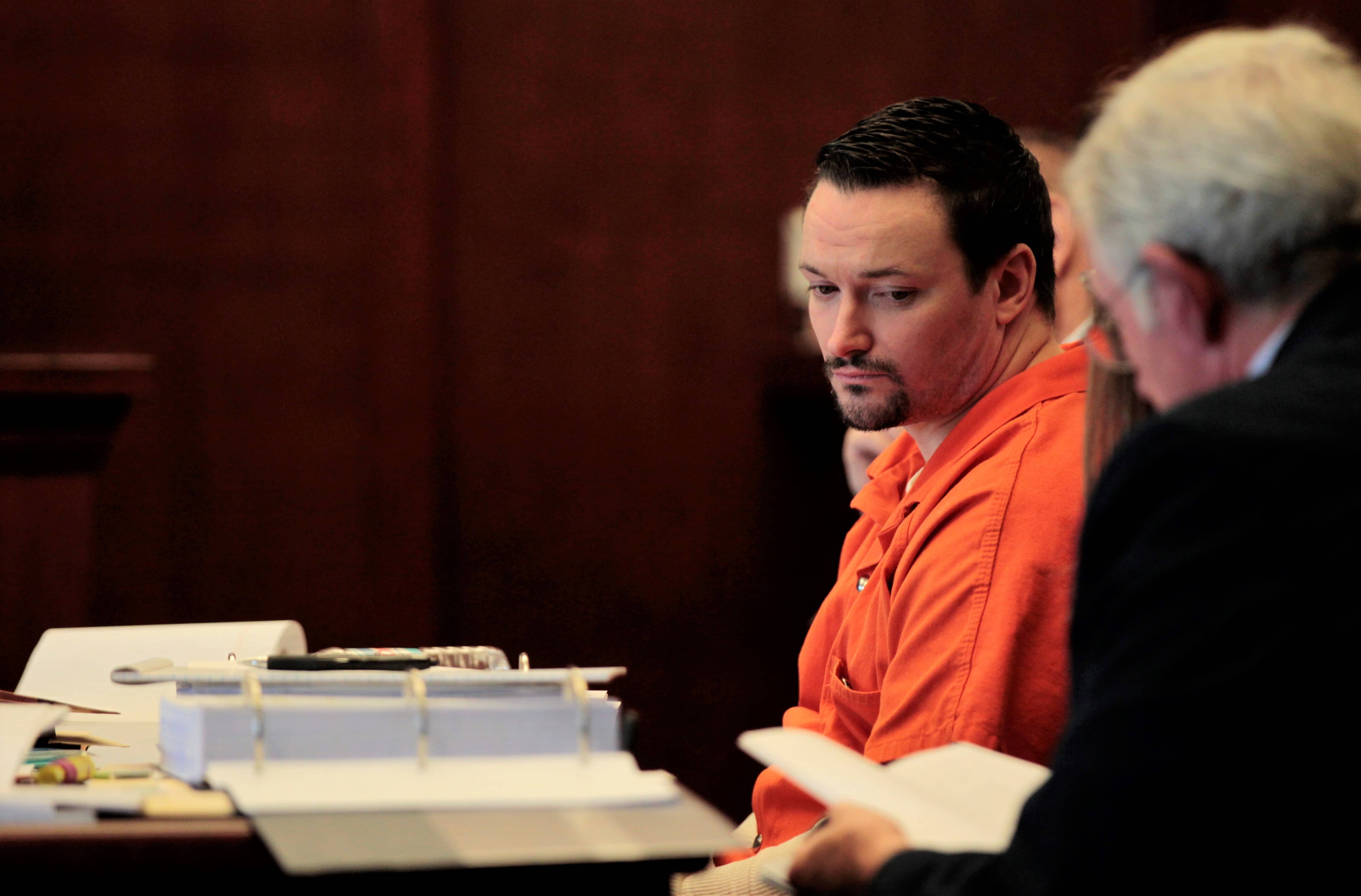
As time for the trial draws near, all parties involved convened for more than five hours Monday morning and afternoon in Trigg County Circuit Court — weighing more than 10 motions in limbo regarding the defense and prosecution of Landon Stinson.
Before adjourning at 4:20 PM, Circuit Judge Natalie White said she will take the next week, at least, to review and make rulings.
Charged with the July 2021 double murder of family members 76-year-old Sue Faris and 28-year-old Matthew Blakeley at 216 Cerulean Road, Stinson’s defense attorneys Bill Deatherage and Chris Woodall — through a number of filings — are asking for a large amount of the Commonwealth’s timeline and burden of proof be suppressed before a jury is selected.
Deatherage, in fact, repeatedly stated that there was “no nexus” of involvement for his client, including a trip to California following two gunshot deaths, nor his change of residences between the home of Faris and his ensuing transition to an apartment on Julien Road.
At the heart of the defense’s argument: Stinson’s actual living arrangements at the time of the Faris and Blakeley deaths.
Stinson, Deatherage said, had a right to privacy in regard to Kentucky State Police and their successive moves for immediate search warrants at the Faris home and his Julien apartment, and that an eventual arrest and extradition back from Los Angeles came without Miranda rights.
Commonwealth’s Attorney Carrie Ovey-Wiggins and Assistant Commonwealth’s Attorney Jill Giordano — through testimony from KSP Det. David Dick and Brian Hill — argued that Stinson’s driver’s license had “216 Cerulean Road” printed as his “place of residence,” and that warrants signed by Trigg and Christian officials were valid and in good faith.
Dick told the court that after an initial search of the Faris home that July evening, he and officials were connected to Stinson’s Julien location — where his vehicle wasn’t located, but other pertinent materials to the case were.
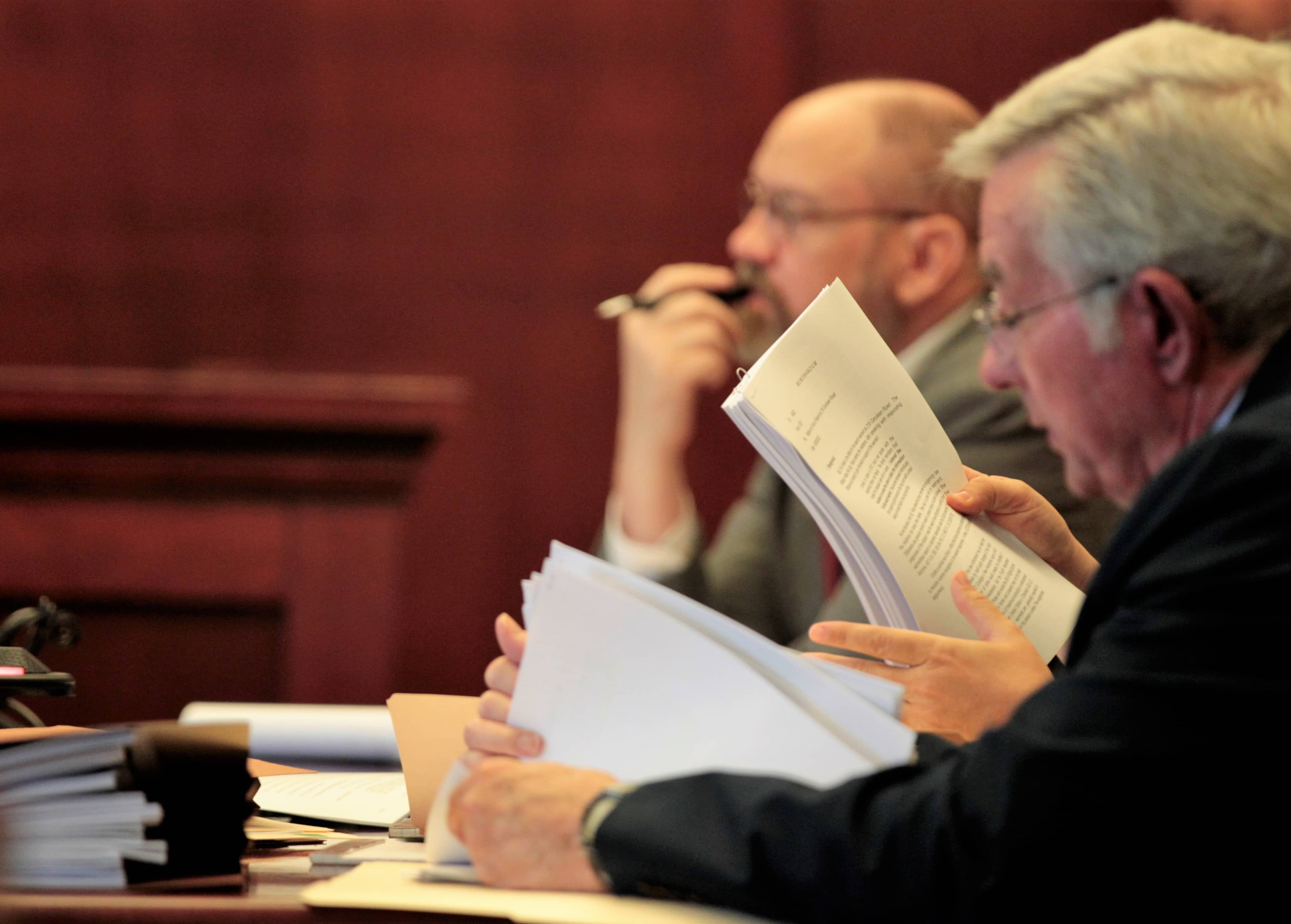
Deatherage argued KSP breached protocol of searching the Julien residence, as a search warrant hadn’t yet arrived when law enforcement located a broken phone and a black bag owned by Stinson in the curtilage and wood-line near the apartment driveway.
According to Dick, he told the Faris family to not enter Sue’s home for 48 hours, and placed red evidentiary tape on doors and locked windows. Soon after, he returned to the Faris property, was given a key to the home by relatives, and upon entering the “undisturbed” scene located more evidence after a more thorough search.
Among the physical items collected from one and/or both properties includes clothing, mail addressed to the defendant, cocaine-positive baggies, as well as pieces and parts of a 9-mm and its shell casings. Text messages between Stinson, Blakeley and a drug supplier are also part of the file, as are disks of body cam footage between Stinson and the Los Angeles Police Department, and a 10-minute interview between Stinson and Dick in California.
It’s here, Deatherage asserted, that his client was held mostly against his will. Stinson was picked up for illegally walking along the freeway, but was taken safely to the next interstate exit in a patrol vehicle while handcuffed. A simple interview in the car led to Stinson’s identity being revealed, connecting him with an active warrant in Kentucky.
In an impassioned 30-minute stance to the court, Woodall stated Stinson was going to maintain his “not guilty” plea up until and through the trial — a plea that was entered January 2022.
Furthermore, Woodall and Deatherage have filed two motions seeking White remove the death penalty from the table if Stinson is found guilty, and to deem it unconstitutional within this case. This is in response to the Commonwealth seeking death in a capital trial.
Woodall noted that three heinous murders in and around Trigg County — Kevin Wayne Dunlap, Ryan Champion and Robert Keith Woodall — either received death sentences or life imprisonment, with none of them having been executed due to varying degrees of circumstance and humanity, and that aggravators in the case couldn’t create a cause of death.
Ovey-Wiggins argued that the Kentucky Supreme Court has already ruled that the death penalty isn’t unconstitutional, regardless of several state’s decisions on the matter in the last two decades.
Monday’s hearing began in the morning, with White noting more than 150 jurors are qualified to serve in the trial set for September 18-29. Though it could be a tedious task, a large questionnaire is planned for individual voir dire, in order to further vet prospective jurors and their knowledge of the case.
White also denied a motion entered by the defense Monday morning, one that asked for further hearings — and the trial — be closed to the media. Deatherage, who recently withdrew a motion for a change of venue, urged that Trigg County’s jury pool could be “tainted” with predisposition, based on consistent coverage of Stinson’s arrest and ensuing pre-trial conferences.
Edward Marlowe, reporter for the News Edge, testified on the station’s behalf, stating the transparency and ease of access mattered.
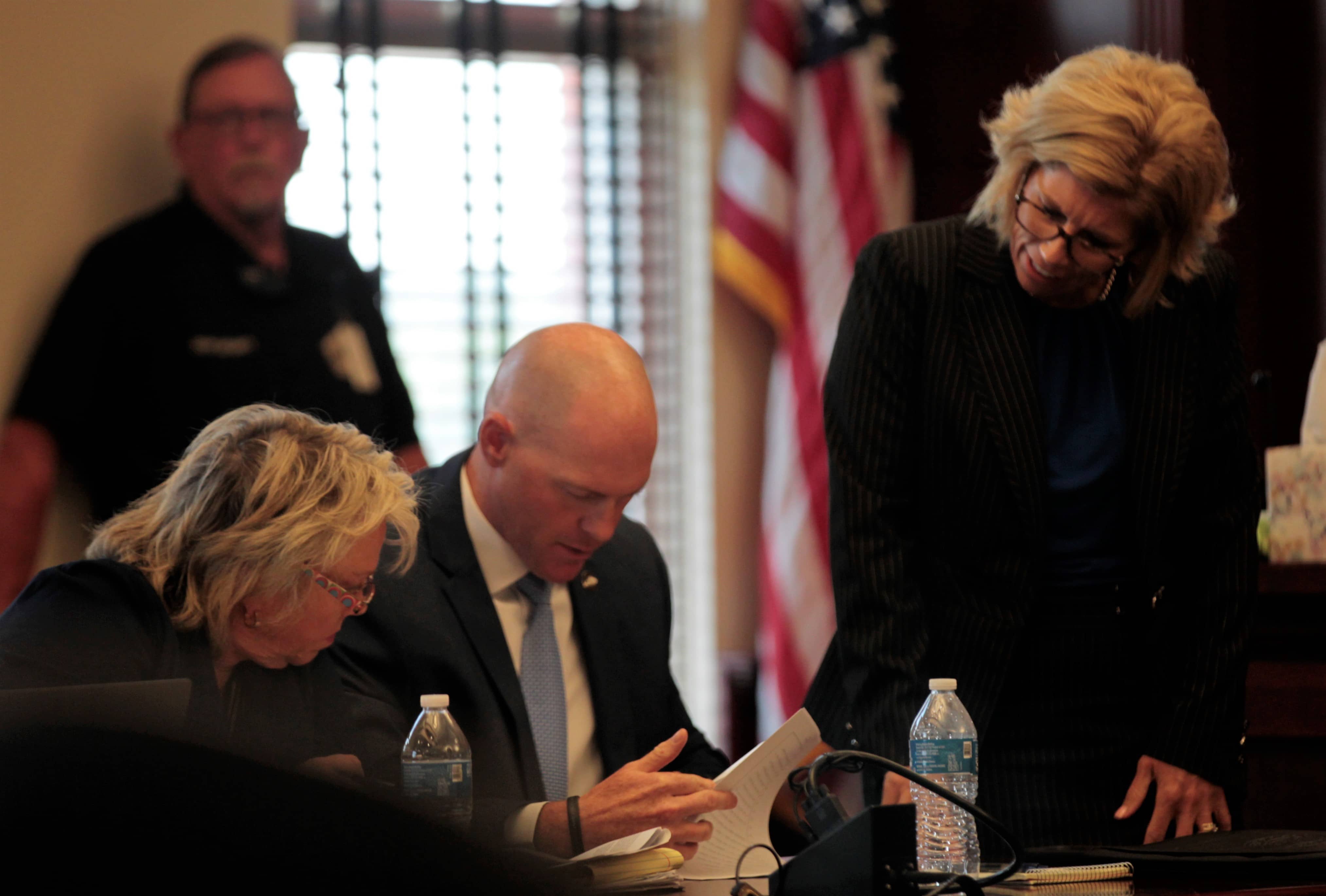
Other points made include:
— Deatherage said that on the night of the murders, KSP officers had been by and knocked on the door of Stinson’s Julien apartment, only to find Stinson gone. An affidavit filed by KSP, Deatherage pointed, offers “no conduct, or connection” between the Cerulean Road home and Stinson’s new apartment.
— Among one of the more unique suppression motions from Deatherage involves a cell phone conversation and ping of Stinson’s burner phone, which was purchased in Texas. Dick attested that Stinson’s mother, Rhonda Neighbors, “frantically” placed calls to Dick on July 4, 2021, concerned about the well-being of Stinson. Dick eventually returned the call after time with his family on holiday, and the parties met on neutral ground in Lyon County. Stinson had contacted Neighbors from California.
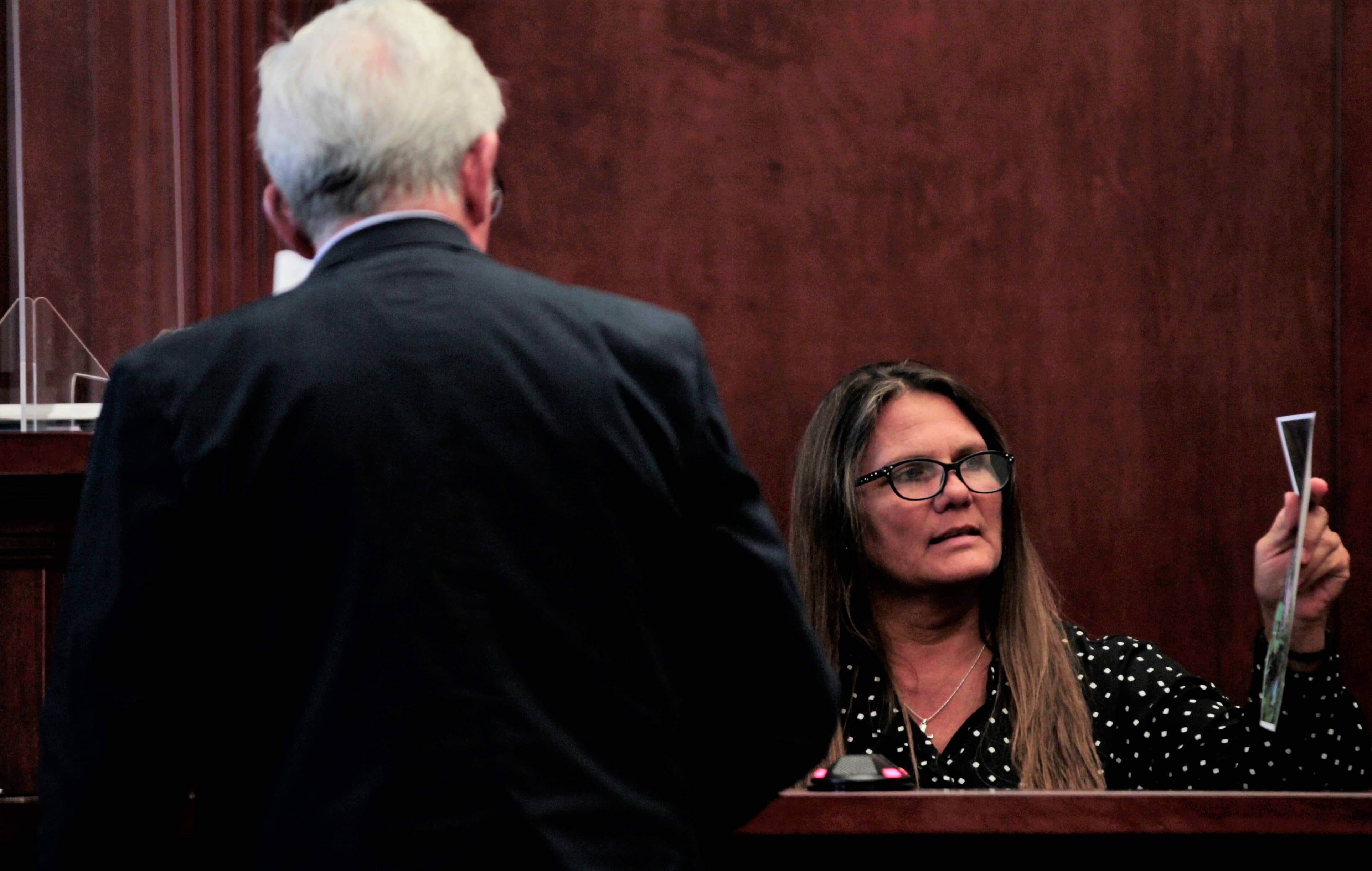
HOURS 1 & 2:
HOURS 3 & 4:
HOURS 5 & 6:
